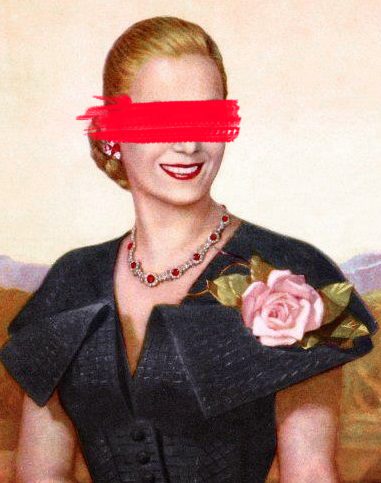Very few songs have attained the status of Don’t Cry for Me, Argentina. For many, it’s all they know about Andrew Lloyd Webber’s rock opera ‘Evita’, chronicling the rise to fame of Eva Perón. In Opera Australia’s production of ‘Evita’ at Melbourne’s State Theatre, Tina Arena as Eva Perón galvanises and seduces the audience as she ascends the socio-political ladder of post-war Argentina.
Don’t Cry for Me, Argentina may seem like a cheesy love ballad, but in reality, it is a chilling masterclass in political manipulation. Arena’s warm tone lulls the assembled crowds into a sense of security, declaring her love for the working class descamisados (the shirtless ones) of Argentina who have just elected her husband, Juan Perón,
to the Presidency. Don’t worry, she seems to be saying, I have kept my promises to you and will never leave you. It’s filled with meaningless platitudes.
And it’s certainly true that the people should not cry for Eva Perón. The truth is they should be crying for themselves and how they allowed Eva to prop up her husband’s corrupt regime.
The song is a classic example of hortatory, where the nation is addressed directly by a singer to undergo a course of action specified by the singer. Apparently, all you need to capture the heart of a nation is determination, stunning dresses, and ruthlessness.
‘Evita’’s stage is sparse, and it marks a return to Hal Prince’s original staging, with a giant screen projecting newsreel-like images and footage of Eva adding a sense of gritty realism to the show. The staging is Brechtian, with props and set pieces being moved in full view of the audience between scenes. Revolving doors, revolving beds, and a game of musical chairs all serve as metaphors for political machinations and manipulation.
In a way, this choice accentuates the ongoing narrative that fame and fortune rest on an elaborate but tenuous web of manipulation. Just as theatre audiences are manipulated into suspending their disbelief, so does Eva Perón enchant the whole nation with her charm.
Instead, the focus is on the detailed costumes, accentuated by brilliant lighting. Eva’s costumes evolve as she evolves, from a polyester print dress as a lower-class teenager, ever-increasing complexity as we see her climb the pecking order, to a white ball gown as she stands on the balcony of the Casa Rosada, and finally to simple black dresses. The working class, the upper class and the military are easily distinguished by their uniforms, at least until their clothing is stripped from them and they become indistinguishable from all the other poor unfortunate souls.
Lighting designer Trudy Dalgeish and sound designer Shelly Lee make excellent use of the State Theatre’s space. The scaffolding, dark lighting, and floor panels work together to create an almost rock concert-like vibe, reflecting across the emptiness of the stage. The use of spotlights draws our attention away from the unsavoury elements of society and focusses it all onto Eva.
We follow Eva as she tours Europe, winning over much of the public there. In the song Santa Evita, she even takes on the mantle as Mother of all the children, workers, and oppressed of Argentina. In this scene, she transcends the confines of any mortal illusion and becomes deified, projected on the stage as the ultimate idol and worshipped by her followers. By this point, she had probably even convinced herself of this delusion. She starts a foundation dedicated to fulfilling the dreams of the poor voter, but is she also helping herself to the funds as well?
Kurt Kansley plays Che, the narrator, guiding the audience through Eva’s life story. Modelled off revolutionary Che Guevara, he makes it his mission to dispel Eva Perón’s illusion and to demonstrate she was not worthy of the outpouring of public mourning and hysteria.
At the end of her life, Eva’s public appearances were short, and her failing body had to be supported by bodyguards, and later on, an intricate wire contraption. Even as she dies, she has to maintain her illusion.
Even in modern times, the media is a powerful tool used by politicians and celebrities to manipulate the public into voting for them, whether it be through labelling dissenting views as fake news or by silencing their critics. It’s very revealing that Donald Trump loves ‘Evita’. Perhaps he feels a connection with the story of a celebrity-turned-politician engaged populist techniques to mobilise the oppressed masses against the corrupt elite.
Eva Perón uses her status as a celebrity from radio dramas to manipulate the voters who are angry at the establishment. But even though her husband is elected, she never gains the respect of the upper classes. It is her political overreach and an attempt to run for vice-president that sparks a backlash against her influence over the populace. However, even still, she maintains a vice-like grip as the masses genuinely adore and worship her.
The end of the musical mirrors Eva’s end – no final martyrdom, no glorious triumph, not even a flashy musical number. Just an embalmed corpse in a coffin, silent mourners, and the lingering afterimage of fame and power. These are the hallmarks of a legacy propped up by extravagant illusions.
We acknowledge the Ngunnawal and Ngambri people, who are the Traditional Custodians of the land on which Woroni, Woroni Radio and Woroni TV are created, edited, published, printed and distributed. We pay our respects to Elders past and present. We acknowledge that the name Woroni was taken from the Wadi Wadi Nation without permission, and we are striving to do better for future reconciliation.
